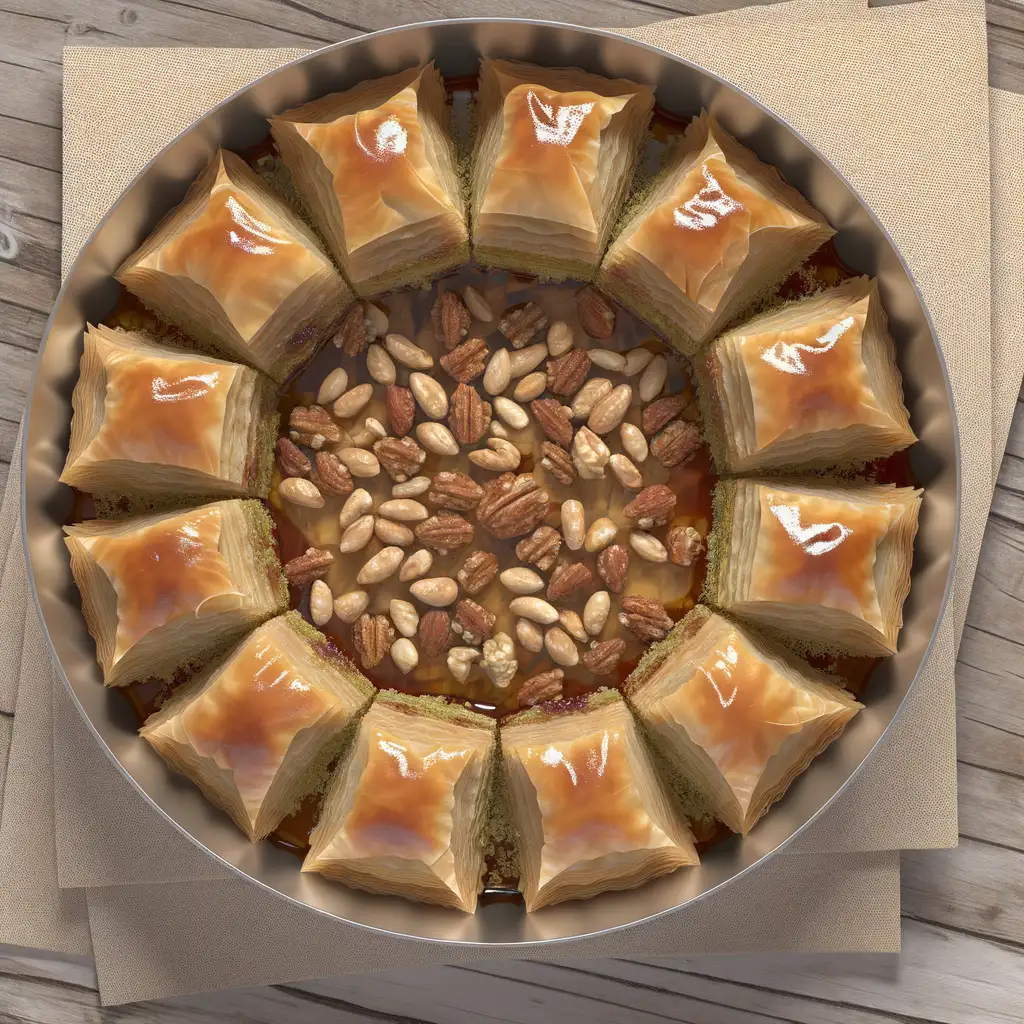



If you ever find yourself dreaming of a place where the sun kisses ancient ruins and the sea hums a gentle lullaby,Kos is that kind of magic. Walking through its streets feels like stepping into a living storybook—whitewashed houses with bougainvillea spilling over balconies,the salty breeze mingling with the scent of fresh olives and grilled seafood wafting from tavernas. There’s a laid-back rhythm here,a warm hum of locals chatting over coffee and kids playing by the harbor,that instantly makes you feel at home. Kos isn’t just about the stunning beaches,though those turquoise waters are impossible to resist. It’s the way history breathes through the town—the ancient Agora,the Roman Odeon,and the Castle of the Knights standing proudly as reminders of a rich past. You can almost hear whispers of philosophers and sailors in the air. At night,the town transforms; fairy lights twinkle above cobblestone streets,and the aroma of freshly baked baklava and sizzling souvlaki invites you to linger over a meal,sharing stories with new friends. What really sets Kos apart is its blend of vibrant energy and genuine warmth. Whether you’re cycling along quiet paths lined with wildflowers or sipping a chilled glass of local wine while watching the sun dip below the horizon,there’s a sense of peace and possibility here. It’s a place that invites you to slow down,soak in the beauty,and savor every moment.
The information on this page is currently being reviewed by Tripkliq and should be used as a guide only
Eng word: Hello
Eng pronunciation: Yah
Local language: Γειά
Eng word: Goodbye
Eng pronunciation: Ahn-dee-oh
Local language: Αντίο
Eng word: Thank you
Eng pronunciation: Ef-khah-ree-stoh
Local language: Ευχαριστώ
Eng word: How much
Eng pronunciation: Poh-soh koh-stee-zee
Local language: Πόσο κοστίζει
Eng word: Toilet
Eng pronunciation: Too-ah-leh-tah
Local language: Τουαλέτα
Eng word: Help me
Eng pronunciation: Voh-ee-thees-teh meh
Local language: Βοηθήστε με
Eng word: Yes
Eng pronunciation: Neh
Local language: Ναι
Eng word: No
Eng pronunciation: Oh-hee
Local language: Όχι
Eng word: Excuse me
Eng pronunciation: See-ghnoh-mee
Local language: Συγγνώμη
Kos is famed as the birthplace of Hippocrates, the Father of Medicine, who was born on the island around 460 BC. The ancient plane tree under which he is said to have taught still stands in the heart of Kos Town.
The Asclepeion of Kos, located just outside Kos Town, is one of the most significant archaeological sites on the island. It served as a sanctuary dedicated to Asclepius, the god of medicine, and was an important healing center in the ancient world.
The Castle of the Knights of Saint John, or Neratzia Castle, is a medieval fortress at the entrance of Kos harbor. It was built by the Knights Hospitaller in the 14th century to protect the island from invaders.
The Ancient Agora, situated near the harbor of Kos Town, was a bustling marketplace and a social center in ancient times. Excavations have revealed temples, altars, and public buildings, showcasing the city's rich historical past.
The Roman Odeon of Kos was constructed in the 2nd century and served as a venue for music performances and political gatherings. It has been partially restored and gives insight into the cultural life of ancient Kos.
Casa Romana, or the Roman House, is a well-preserved Roman villa from the 3rd century AD, renovated in the 2nd century. Its intricate mosaics and grand architecture reflect the wealth and sophistication of its inhabitants.
The Tree of Hippocrates is an ancient plane tree located in Kos Town. Legend has it that Hippocrates taught his pupils under this tree. Though the current tree is not the original, it symbolizes the enduring legacy of Hippocrates.
The Archaeological Museum, located in Kos Town, houses a rich collection of artifacts from the island's historical sites, including sculptures, mosaics, and ceramics that span from prehistoric times through to the Hellenistic and Roman periods.
The ruins of the Ancient Gymnasium can be found near the center of Kos Town. It was an important athletic and cultural training center in ancient times, showcasing the city's commitment to physical and intellectual education.
In Kos, the most common Power Adaptor is C, F.



A traditional Greek dish made with layers of eggplant, minced meat, and béchamel sauce, baked to perfection.

A sweet pastry made of layers of filo dough filled with chopped nuts and sweetened with honey or syrup.

A refreshing yogurt-based dip made with cucumbers, garlic, and dill, commonly served as an appetizer.

Slow-cooked lamb marinated with herbs and spices, traditionally wrapped in parchment paper and baked until tender.

Skewered and grilled meat, often served with pita bread, tomatoes, onions, and a side of tzatziki sauce.

Grape leaves stuffed with a mixture of rice, pine nuts, and herbs, often served with a lemon sauce.

A creamy dip made from yellow split peas, typically garnished with onions, capers, and olive oil.

A traditional Greek salad made with tomatoes, cucumbers, olives, onions, and feta cheese, dressed with olive oil.
Known for its medieval Old Town,stunning beaches,and the Palace of the Grand Master,Rhodes is a top destination for history lovers and beachgoers alike.
ExploreFamous for its iconic white-washed buildings,breathtaking sunsets in Oia,and volcanic beaches,Santorini is a must-visit for romantic and scenic experiences.
ExploreImagine stepping into a place where the sun kisses whitewashed buildings,and the breeze carries the salty scent of the Aegean Sea mixed with blooming bougainvillea. That’s Mykonos for you—a lively island that feels like a sun-drenched dream with a pulse all its own. The moment you wander through its narrow,winding streets,you’ll hear the cheerful chatter of locals and travelers mingling in cozy cafes,the clinking of glasses filled with crisp local wine,and the distant hum of waves crashing against the shore. It’s a place that effortlessly blends laid-back island charm with a vibrant energy that keeps you on your toes,whether you’re exploring or simply soaking it all in.
What makes Mykonos truly special is its character—a mix of old-world Greek tradition and a cosmopolitan flair. You’ll find charming windmills standing guard over the town,tiny chapels with blue domes,and bustling markets where artisans sell handmade jewelry and fresh olives. The food alone is worth the trip:imagine biting into a juicy,sun-ripened tomato salad drizzled with golden olive oil,or savoring freshly grilled octopus while watching the sunset paint the sky in shades of pink and orange.
But beyond the sights and tastes,Mykonos has a way of making you feel alive. Whether you’re dancing barefoot at a beach party,sipping a cocktail as the stars emerge,or simply strolling along the waterfront watching fishing boats bob gently in the harbor,there’s a warmth here that stays with you long after you leave. It’s not just a destination—it’s a feeling you’ll want to return to again and again.
Athens feels like stepping into a living storybook where ancient history and vibrant modern life dance together effortlessly. The moment you wander through its sun-drenched streets,you’re greeted by the warm hum of chatter spilling from cozy cafés,the scent of freshly baked bread mingling with salty sea air. The city’s heartbeat is unmistakable—whether it’s the clinking of glasses in a bustling taverna or the distant echo of footsteps climbing the Acropolis at sunset.
What makes Athens truly captivating is its raw,unpolished charm. You’ll find crumbling ruins nestled beside colorful street art,and locals who greet you with genuine smiles and a generous spirit. The city pulses with creativity—from lively markets where vendors call out their freshest olives and figs,to rooftop bars where you sip ouzo while the Parthenon glows golden against the twilight sky.
Athens invites you to slow down and savor its layers. Taste the tang of lemon in a perfectly grilled souvlaki,feel the rough stone of ancient columns beneath your fingertips,and listen to the mix of languages and laughter that fills the air. It’s a place where every corner tells a story,and every meal feels like a celebration. If you want a city that’s alive with history yet buzzing with contemporary energy,Athens will wrap you in its warm,timeless embrace.
If you find yourself wandering through Irákleion,the capital of Crete,you’ll immediately notice a lively pulse that’s both ancient and alive. The city hums with a unique blend of history and everyday Greek life—where the scent of freshly baked bread from local bakeries mingles with the salty breeze drifting in from the nearby sea. Walking through its bustling streets,you’ll hear the chatter of locals at outdoor cafés,the clinking of glasses filled with raki,and the distant call of seagulls overhead. It’s a place where the past isn’t just preserved in museums but woven into the very fabric of daily life.
Irákleion’s character is a warm embrace of contrasts:modern shops and vibrant markets sit alongside remnants of Venetian walls and Byzantine churches. The city’s heartbeat is palpable in the central square,where families gather,musicians play,and the aroma of grilled seafood tempts your senses. Don’t miss wandering through the lively market stalls,where you can taste sun-ripened olives,creamy cheeses,and sweet honey that tastes like sunshine.
What makes Irákleion truly special is how effortlessly it invites you to slow down and savor moments—whether it’s sipping a strong Greek coffee while watching the world go by or exploring the nearby archaeological site of Knossos,where myths come alive. It’s a city that feels like a warm conversation with an old friend,full of stories,flavors,and a spirit that stays with you long after you leave.
Greece's second-largest city,Thessaloniki offers a mix of Byzantine history,vibrant nightlife,and a thriving food scene,making it a cultural hub.
ExploreScammers may install skimming devices on ATMs to steal card information when tourists withdraw cash.
Some bars and clubs may inflate drink prices or add hidden fees to the bill, especially in tourist-heavy areas.
Tourists may be charged exorbitant fees for using beach chairs and umbrellas without clear signage about the costs.
Shops may sell counterfeit or low-quality items at high prices, claiming they are authentic or handmade.
Unlicensed individuals may pose as tour guides and charge high fees for subpar or inaccurate tours.
Rental companies may claim damages to vehicles that were already present and charge tourists for repairs.
Some taxi drivers may overcharge tourists by not using the meter or taking unnecessarily long routes.
Pickpockets may target tourists in busy areas, especially near popular attractions or on public transport.
Some restaurants may inflate bills by adding items you didn’t order or charging excessive prices for basic items.
Street vendors may sell counterfeit branded goods or low-quality items at inflated prices.
The possession, use, and trafficking of illegal drugs are strictly prohibited in Kos, Greece. Greek law imposes severe penalties for drug-related offenses, including heavy fines and imprisonment. Even small amounts of illegal substances can lead to serious legal consequences. Tourists should avoid any involvement with illegal drugs to ensure a safe and trouble-free visit.
In Kos, Greece, smoking is generally allowed in outdoor public spaces, but it is prohibited in indoor public places such as restaurants, bars, and public transportation. There are designated smoking areas in some establishments, so it's best to look for signs or ask staff. Smoking is also banned in certain outdoor areas like playgrounds and sports facilities.
Vaping follows similar regulations to smoking in Kos. It is prohibited in indoor public spaces and public transportation. While it is generally allowed in outdoor areas, some establishments may have their own rules regarding vaping, so it's advisable to check for signs or ask staff.
What are other people saying about Kos?
Recent Social posts about Kos
There is nothing to show you for now.